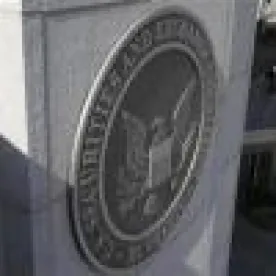“Hear ye, Hear ye.” The parties to the legal challenge of the SECs conflict minerals rule have agreed that no further court proceedings are necessary and have requested that the US District Court enter a judgment in accordance with the decisions of the Court of Appeals — that is, that certain elements of the rule violated reporting entities’ First Amendment rights. So, the legal challenge of the rule is over — all but the final judgment to be entered by the US District Court. A proposed final judgment is to be proposed by the parties no later than March 20, 2017.
It all started back on August 22, 2012, when the SEC adopted its conflict minerals rule as required by Section 1502 of the Dodd-Frank Act. Two months later, on October 22, 2012, a petition for review was first filed with the US Court of Appeals, District of Columbia Circuit, requesting that the conflict minerals rule be modified or set aside in whole or in part. After many proceedings in the District Court and the Court of Appeals, in April 2014, the DC Circuit Court of Appeals held that Section 1502 and the conflict minerals rule violated the First Amendment “to the extent the statute and the rule require regulated entities to report to the Commission and to state on their website that any of their products ‘have not been found to be “DRC conflict free.'” In April 2015, after a panel rehearing, the Court of Appeals issued a new opinion and confirmed its April 2014 ruling.
The case was remanded back to the US District Court for “further proceedings consistent with the Court of Appeals’ rulings.” But, considering the previous statements of the SECs now-Acting Chair, Michael Piwowar, and the leaked draft Executive Order relating to the conflict minerals rule, it is no surprise that the SEC agreed that no further proceedings were necessary.
Now, we wait for the other shoe(s) to drop —
-
On January 31, 2017, Acting Chair Piwowar encouraged interested parties to submit comments to the conflict minerals rule and the existing SEC guidance relating to it. Comments in support and in opposition to the rule, and comments requesting more relief from the requirements of the rule are being taken until March 17, 2017. It is likely that the conflict minerals obligations on reporting companies will be reduced and not increased in any resulting guidance from the SEC.
-
President Trump could issue an Executive Order that would waive compliance with the rule for 2 years (as was contemplated in the draft memo leaked in early February 2017).
-
Congress could adopt legislation that would repeal Section 1502 of the Dodd-Frank Act and the resulting conflict minerals rule.
But, considering the repeated legal challenges to President Trump’s Executive Orders and the complexity of the legislative process, the path of least resistance for the Administration seems to be new guidance from the SEC.
Reporting companies will be watching closely to see if any such new guidance comes in time to impact their preparations for the Form SD filings due May 31, 2017.




 />i
/>i

